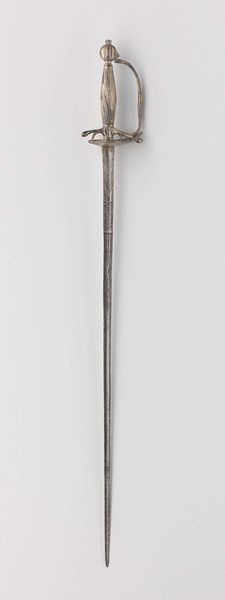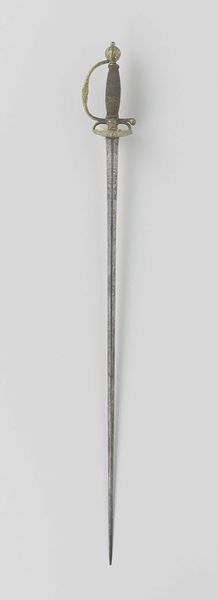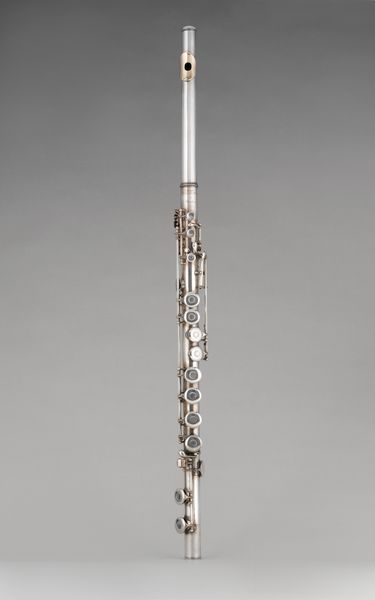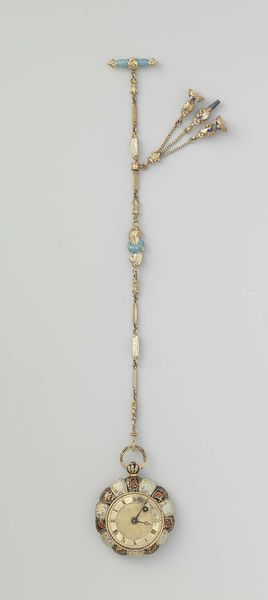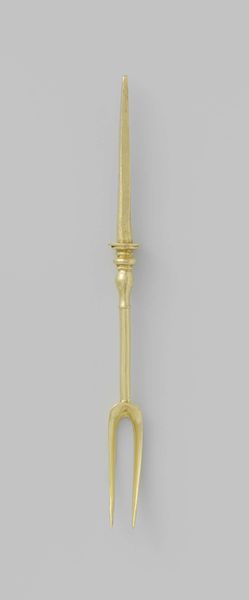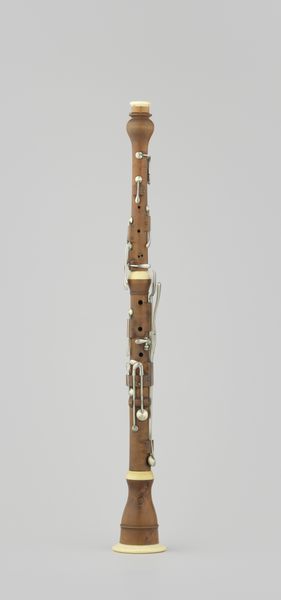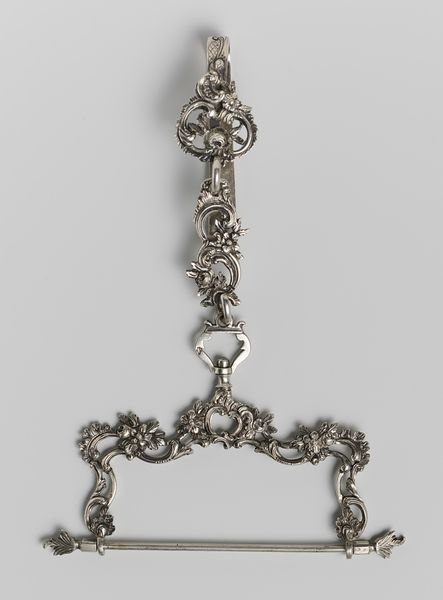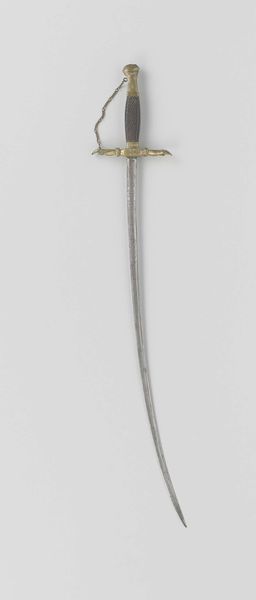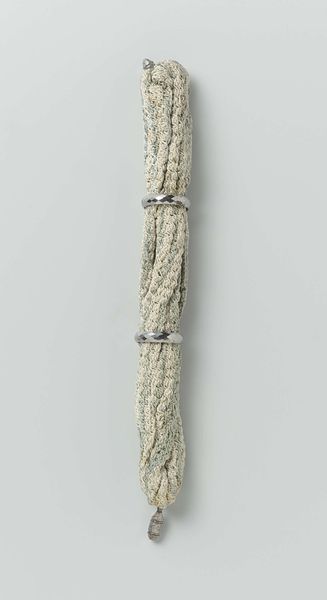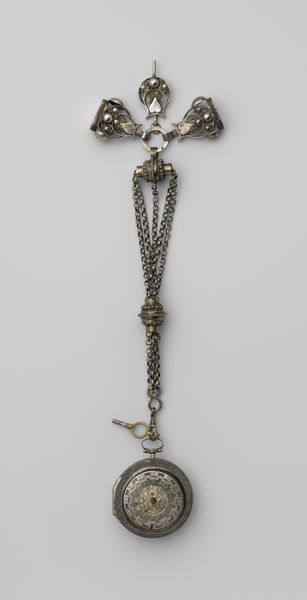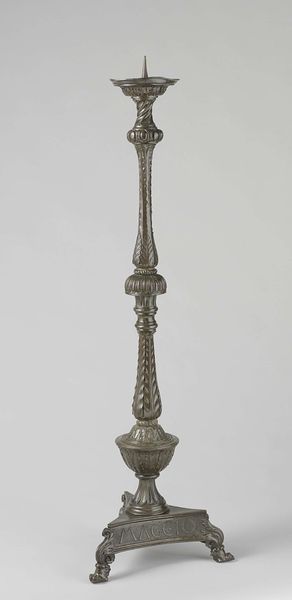
carving, metal, sculpture
#
medieval
#
carving
#
metal
#
sculpture
Dimensions: length 115.5 cm, diameter 6.6 cm, weight 715 gr, weight 750 gr
Copyright: Rijks Museum: Open Domain
This ceremonial staff was crafted by Johannes Vuystinck, its materials suggesting both wealth and ritual significance. Such an object, when viewed through the lens of social history, speaks volumes about the society that produced and used it. The staff's very existence underscores hierarchical structures. It acted as a visible marker of authority within religious, civic, or military contexts. The precious materials denote a culture where conspicuous consumption and the display of status were paramount. Imagine the social context in which this staff would have been deployed. It could have been wielded during public ceremonies, religious processions, or official gatherings, shaping public perception and reinforcing social norms. By studying surviving documents, material culture, and visual representations of the period, historians can reconstruct the intricate web of social relations and power dynamics of which this staff was a potent symbol.
Comments
rijksmuseum over 2 years ago
⋮
A staff was often a sign of authority. This one belonged to the bailiff of the chapter of the Old Munster church in Utrecht. He administered justice in the regions and villages under the chapter’s jurisdiction. The religious background of this authority is indicated by the crown on the staff: Christ as Saviour of the World.
Join the conversation
Join millions of artists and users on Artera today and experience the ultimate creative platform.
